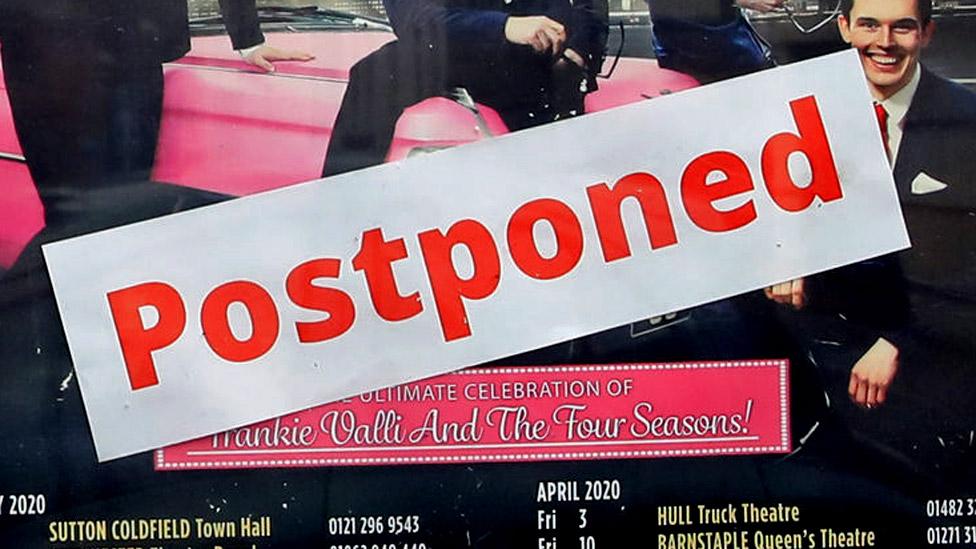'We're clinging on' - theatre leaders discuss lockdown turmoil
- Published
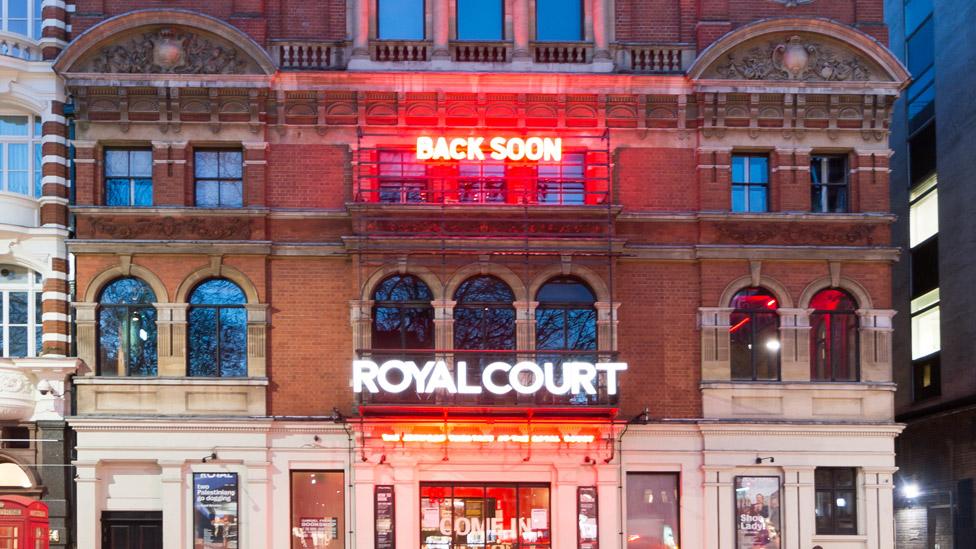
The Royal Court in London has a sign promising to be "back soon"
Theatres will be among the last places to reopen after the coronavirus lockdown is lifted, meaning venues, actors and crews are fearing for their futures.
The appeal of the theatre - cramming into an enclosed space with hundreds of strangers to share a communal experience - has suddenly become its greatest risk.
Box office takings have dried up virtually overnight. Reopening with social distancing will not make financial sense. One venue, the Nuffield in Southampton, has already gone into administration.
Below, four artistic directors discuss how and when they might reopen, and warn of dire consequences if income and funding dry up.

'It's almost impossible to socially distance a theatre'
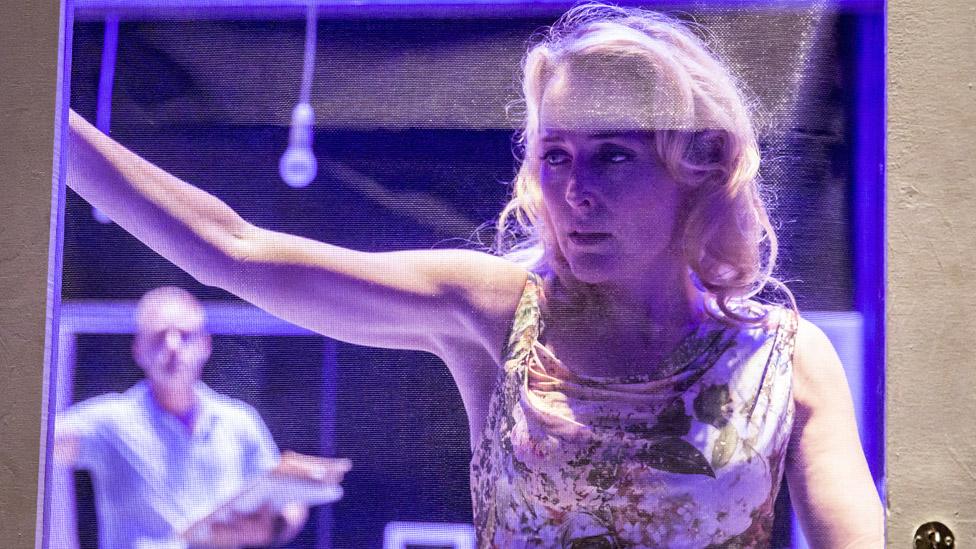
Gillian Anderson starred in the Young Vic's production of A Streetcar Named Desire
The theatre industry is badly wounded, according to Young Vic artistic director Kwame Kwei-Armah's analogy. "Right now we're at the tourniquet stage," he says. "We're trying to stem the bleeding.
"Then we're going to have to stand up, and then we're going to have to run. And we're going to need help at each stage in order to get back to - not even the way it was, but to get back to something that is sustainable and safe."
He believes the south London venue and others like it have enough money to keep going until the autumn. Arts Council England has made £90m of emergency funding available to keep organisations afloat until the end of September.
After that, they will need a government bailout. Without one "many of us will fall off a cliff" in the subsequent months, Kwei-Armah explains.
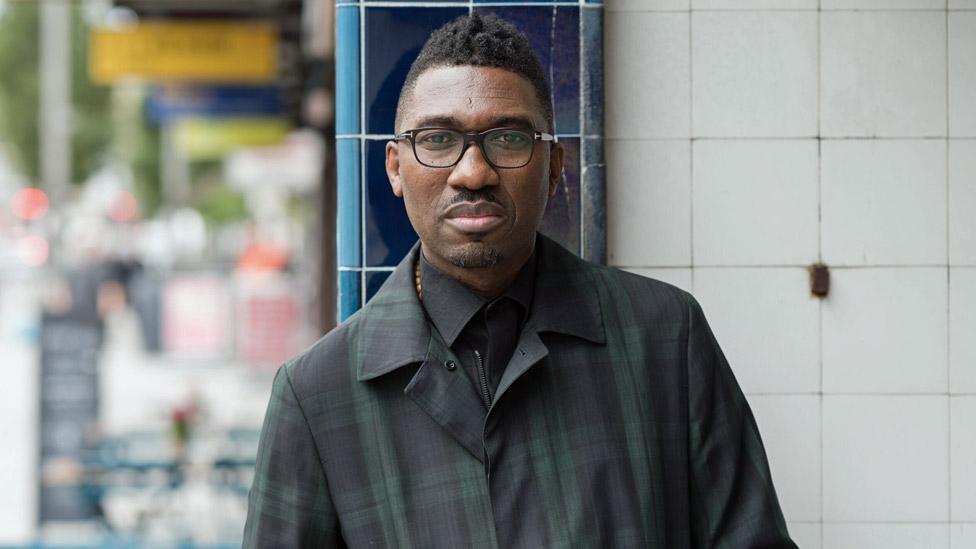
Kwame Kwei-Armah and other staff have been making food deliveries
The key to reopening will be an end to social distancing. "It's almost impossible economically to socially distance a theatre," he says.
"In order to social distance at 2m, we would lose three quarters of our audience. And then we have to work out how you create safe space for the rest of the staff - backstage and in a rehearsal room.
"And then we have to work out what the public appetite might be towards coming back into a theatre."
It will then take three months to get back up and running, taking staffing and rehearsals into account, he adds.
The Young Vic is planning different reopening scenarios up to next April - more than a year after going dark.
The venue has furloughed most staff but has continued some work - reaching 100 members of its young directors scheme online every day, and running a local playwriting programme. Staff are also making food deliveries for a local charity.
When theatres do turn the lights back on, Kwei-Armah says those who have often been excluded in the past must be present.
"From class to race to gender, we have made great progress over the last few years in our sector in trying to equalise it," he says.
"I'm determined absolutely that all of that progress that we've made cannot go for naught. We have to rebuild with that as a fundamental."
The Young Vic's production of A Streetcar Named Desire will be streamed by the National Theatre from 21 May.

'We're clinging on for dear life'
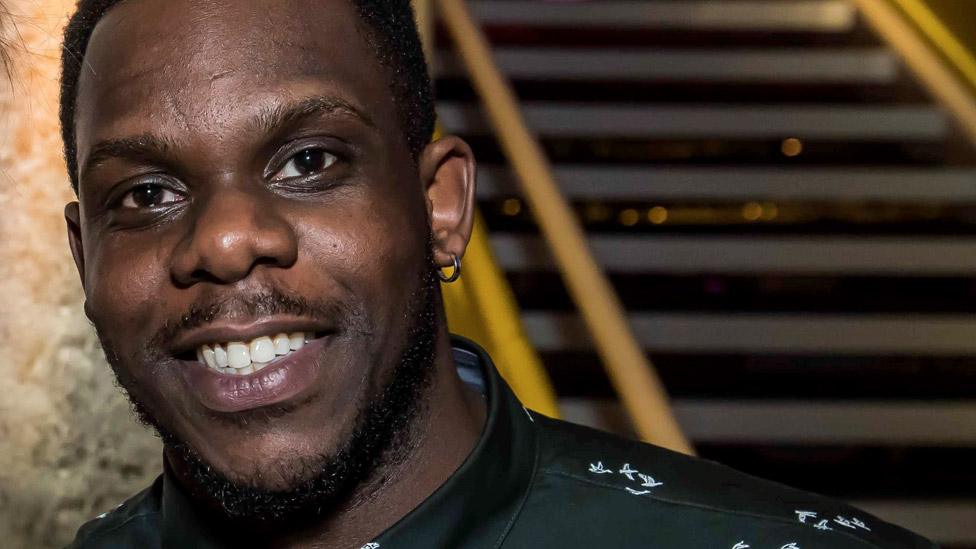
Roy Alexander Weise hopes to "give people moments of connection through art"
Coronavirus hasn't stopped the youth and elders groups at Manchester's Royal Exchange theatre making a show together - they have just done it online.
The five episodes of Connect Fest, external, about an ageing band reforming for a festival, are being released daily this week.
"We're still trying to do what we are here to do, which is to give people moments of connection through art," says joint artistic director Roy Alexander Weise.
"It's hard, though, because the team who are producing that piece of work has been cut down because we've had to furlough close to 90% of our staff to help keep ourselves afloat financially, because we aren't making the money that we would do."
When the venue does eventually reopen, Weise and co-artistic director Bryony Shanahan are also thinking about socially-distanced shows.
"It doesn't necessarily make financial sense for us to do that," he says. "But we understand that our purpose is greater than financial gain. It is far greater - it's connection, wellbeing, equal opportunities.
"So I guess, just like everyone else, we're clinging on for dear life trying to see what will happen next, and all we can do is prepare ourselves as best we can to brace for whatever the landscape looks like.
"Producing shows is going to feel incredibly difficult to do in the coming months."
Allow YouTube content?
This article contains content provided by Google YouTube. We ask for your permission before anything is loaded, as they may be using cookies and other technologies. You may want to read Google’s cookie policy, external and privacy policy, external before accepting. To view this content choose ‘accept and continue’.

How will the pandemic change theatre? Weise says many people are afraid of "a huge regression" in the types of plays and voices heard, seeking refuge in "plays that they know will sell".
He goes so far as to say some think "it might be a good thing for some institutions to go" - venues that "for a very long time have been led by lots of people who all look the same, who invite the same audiences in."
He's focusing on his theatre's purpose and why it stages the shows it does. "We've all got more than enough time now to think about our why as artistic leaders."
The current hiatus is a chance to prepare for allowing a wider range of people to tell their stories, he says. "Narrative is everything. It really does rule the world.
"We have a real opportunity to allow people to understand the power of story, allow people to step into some of that power, who maybe haven't been able to step into that power before, and see the exciting ways in which our world can progress."

'We have led the world - we need to continue'
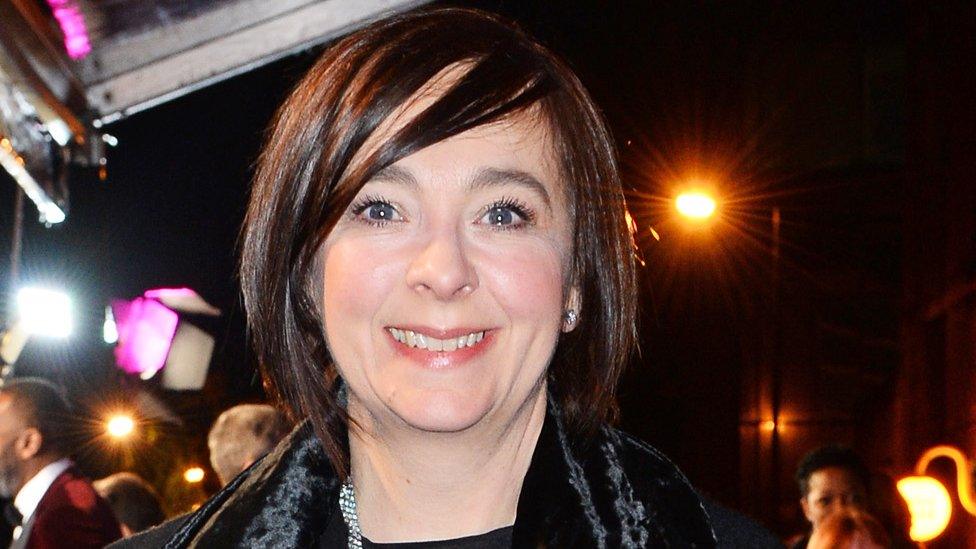
Vicky Featherstone is concerned about the Royal Court's freelance workers
When the Royal Court shut in March, it put the words "Back Soon" up in big letters on the front of its building in west London. But how soon?
"We keep coming up with different scenarios for when we could open and how we could open, and we alight on one thing, and then that slips," artistic director Vicky Featherstone says.
"The closest I can imagine being able to invite a full capacity audience is around January."
It's too risky to commit the money for a big production before that. "If there was another spike [in infections], or actors get ill, we would have to stop again and that would be really damaging."
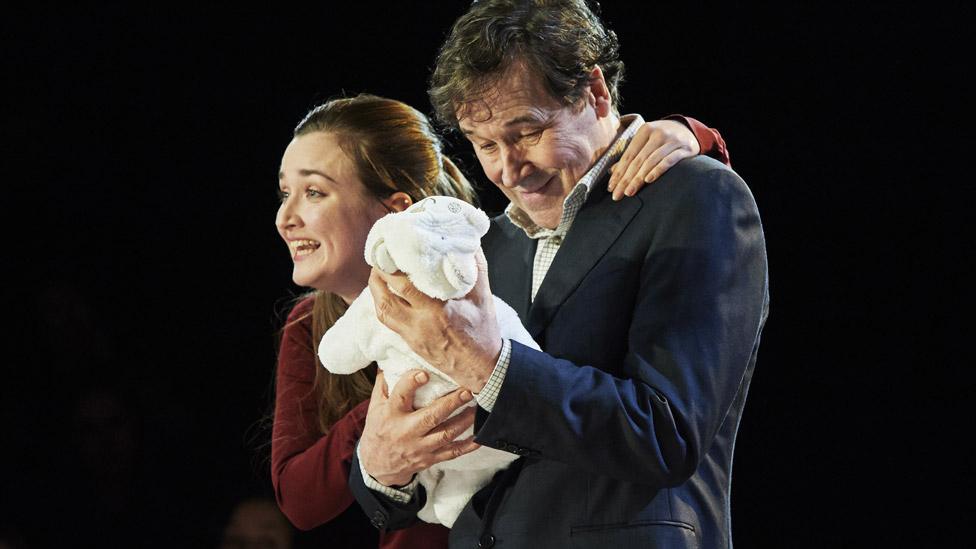
The Royal Court has put a filmed version of Cyprus Avenue online
That doesn't necessarily mean the building will be totally shut until 2021. Featherstone is trying to think of "creative, socially distanced ways" to host events, perhaps for young people, in the autumn.
"Something more playful and hopeful, a bit more radical, reckless, for much, much smaller groups of people," she explains.
As well as thinking about how to make members of the public feel safe, she is preoccupied by the predicaments of the freelancers who work on their shows. All plays that had been announced will go ahead - at some point.
"We have a massive freelance and self-employed workforce that I think we have taken for granted. And now we need to think about how they are supported."
Most of the theatre's education and outreach work has continued digitally, and it has put David Ireland's play Cyprus Avenue online. The Royal Court website is now showing a live feed of the empty theatre.
Allow YouTube content?
This article contains content provided by Google YouTube. We ask for your permission before anything is loaded, as they may be using cookies and other technologies. You may want to read Google’s cookie policy, external and privacy policy, external before accepting. To view this content choose ‘accept and continue’.

Theatres play a crucial role, she says, citing research, external that (in normal times) more people go to theatres than to Premier League football matches. They are also where many people in film and TV learn their craft.
Featherstone points to Alice Birch, who came through the Royal Court's ranks before co-writing BBC Three's hit drama Normal People.
"We all need stories and we all need our imaginations to be fired up," Featherstone says. "From Shakespeare onwards, we have absolutely led the world. We want to be able to continue that."

Kim Cattrall told the BBC's Will Gompertz "we must be ever vigilant" to protect regional theatres

'It feels incredibly painful'
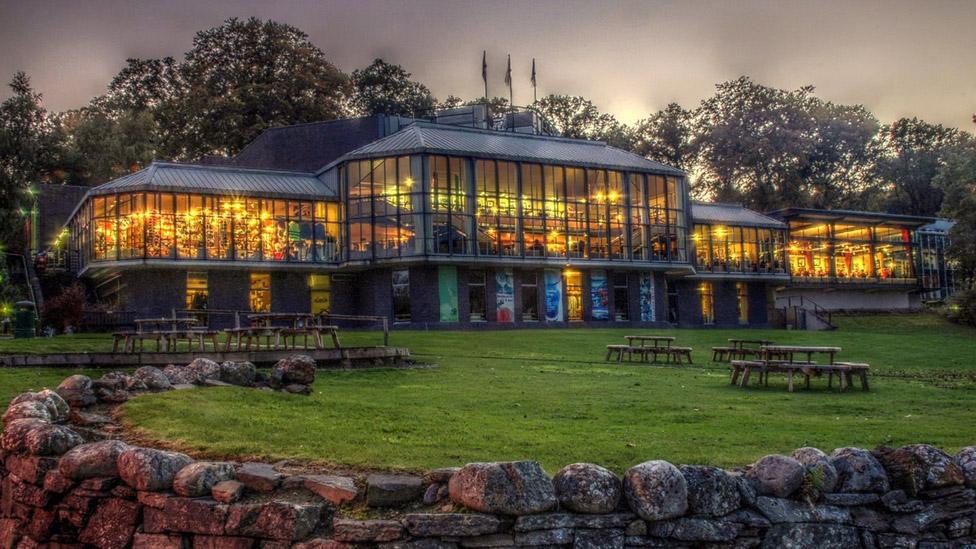
Pitlochry Festival Theatre has a 538-capacity auditorium
Pitlochry Festival Theatre in the Scottish Highlands has postponed its summer season, which had been due to start next week.
But artistic director Elizabeth Newman has been busy organising activities, like a phone line for actors to have chats with lonely locals; three daily rays of "Light Hope Joy" on social media; and 50 works of art dedicated to the River Tay.
One of the summer shows, David Greig's new play Adventures with the Painted People, is being made for BBC Radio 3 instead.
"We've tried to remain a producing organisation that is making art," Newman says. "On the one hand we're doing that and on the other, myself and Kris [Bryce], the executive director, are working around the clock to work out how we can survive this crisis."
That means working out how to stage socially-distanced shows. "We need to be looking at how we can make work that adheres to government guidelines, but also we need to make sure that we're solvent," she says.
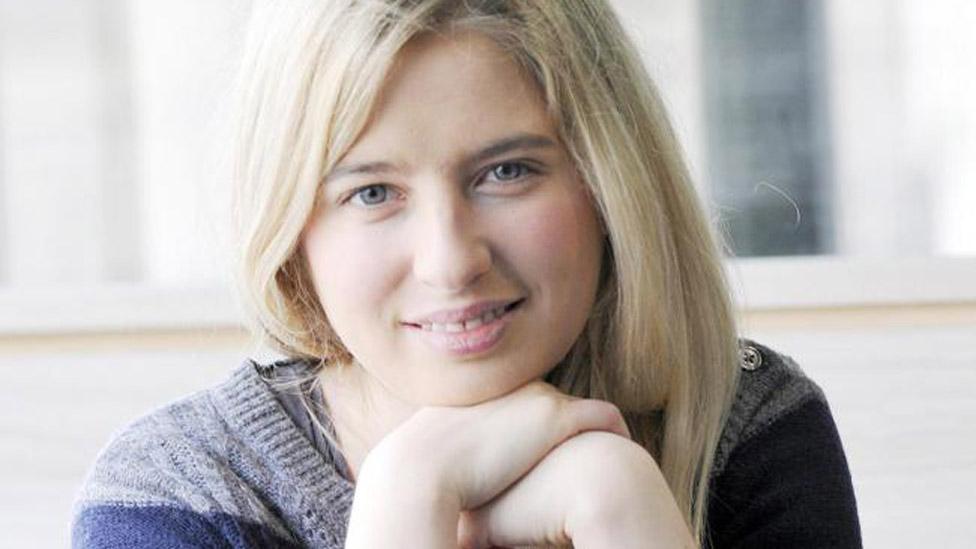
Elizabeth Newman says she is "working around the clock"
If they tried to socially distance the 538-capacity auditorium, they would only be able to admit 70 people, which "is not financially viable". So Newman and Bryce are looking beyond the building to its 11-acre grounds.
"We're going to have to conceive programmes of work that are not necessarily in the auditorium and are outside, and are quality and rich for our audience, but not necessarily about them being shoulder-to-shoulder with strangers.
"Those are the ideas I'm coming up with - work outdoors, different kinds of performances, different kinds of events, different kinds of social happenings that can occur, but that don't place peoples' lives at risk."
The theatre is the biggest employer in the area, but there are likely to be redundancies. "I feel that weight very heavily on my shoulders," Newman says.
"Some tough decisions are going to have to be made. And it's not going to be small changes, it's going to be big changes for a time. And that feels incredibly painful if I'm honest."
Newman says Creative Scotland hasn't been in a position to offer extra financial support, so she is hoping for an extra package from the UK government.
"It's going to be the last industry that's going to be able to get up to full function, and we're just praying that they're going to come back with some sort of relief and support."
Adventures with the Painted People is on Radio 3 on 7 June.

Government 'very concerned for the future'
In response to a question about theatres at Wednesday's Downing Street briefing, communities secretary Robert Jenrick said: "All of us who care about the arts are very concerned for the future of theatres, museums and galleries, performing arts, all of those who work in the sector."
The arts are "incredibly important to the UK" and "one of our great international strengths" as well as being "important for our wellbeing", he said.
Many arts organisations have had government support through the furlough scheme, while self-employed people could access grants, he explained.
"The culture secretary is also working very closely with our main cultural institutions to see how we can guide them through undoubtedly a very difficult time, and to put in place the social distancing guidelines so they are ready to reopen when the science and medical opinion allows," he continued.
"We hope that that will be later this summer," he added, citing the plan for easing the lockdown, which was published earlier this week. "But it is very conditional on continuing to keep the rate of infection down, and continuing to control the virus."

Follow us on Facebook, external, or on Twitter @BBCNewsEnts, external. If you have a story suggestion email entertainment.news@bbc.co.uk, external.
- Published7 May 2020
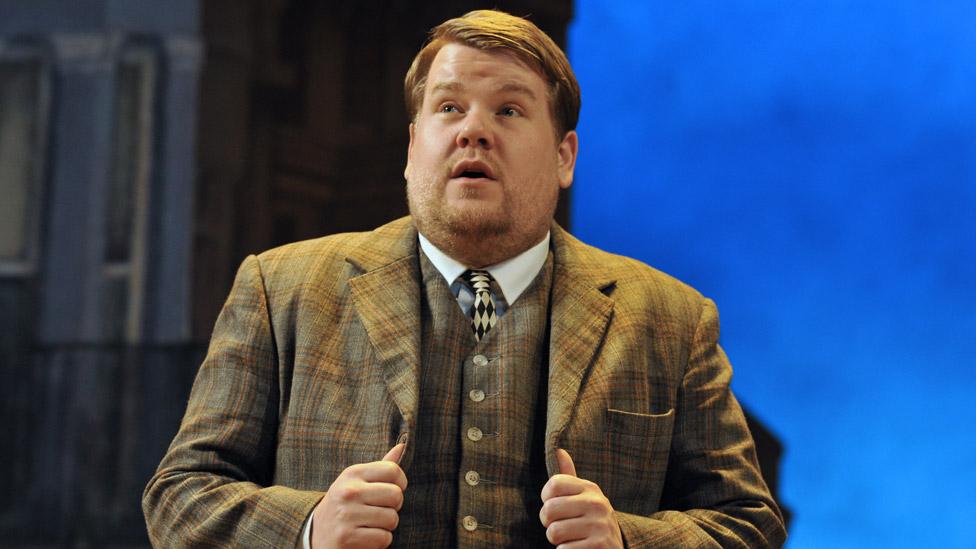
- Published7 May 2020
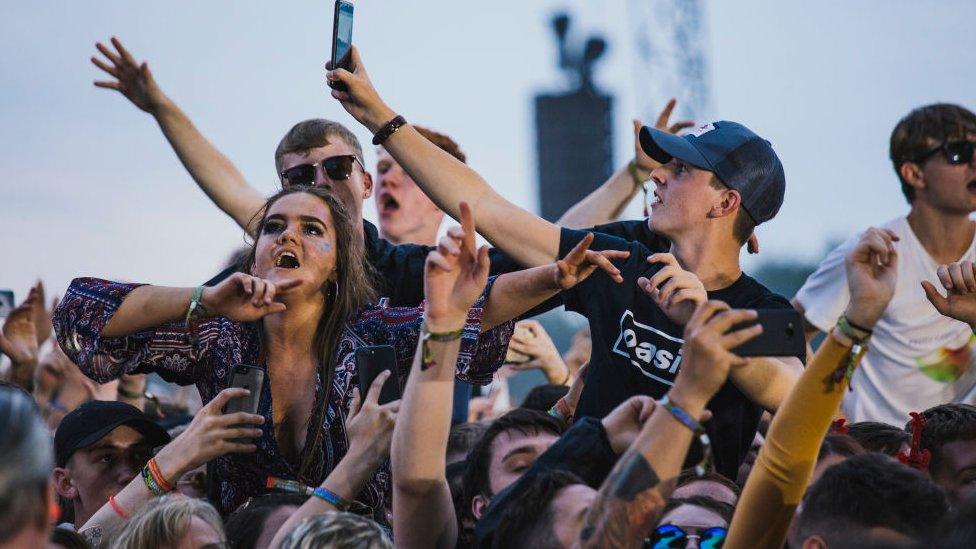
- Published6 May 2020
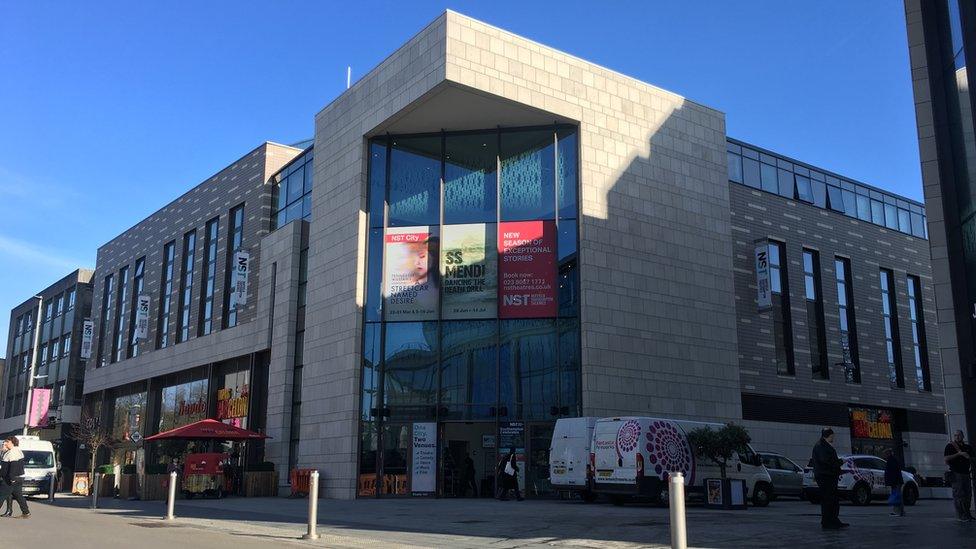
- Published4 May 2020
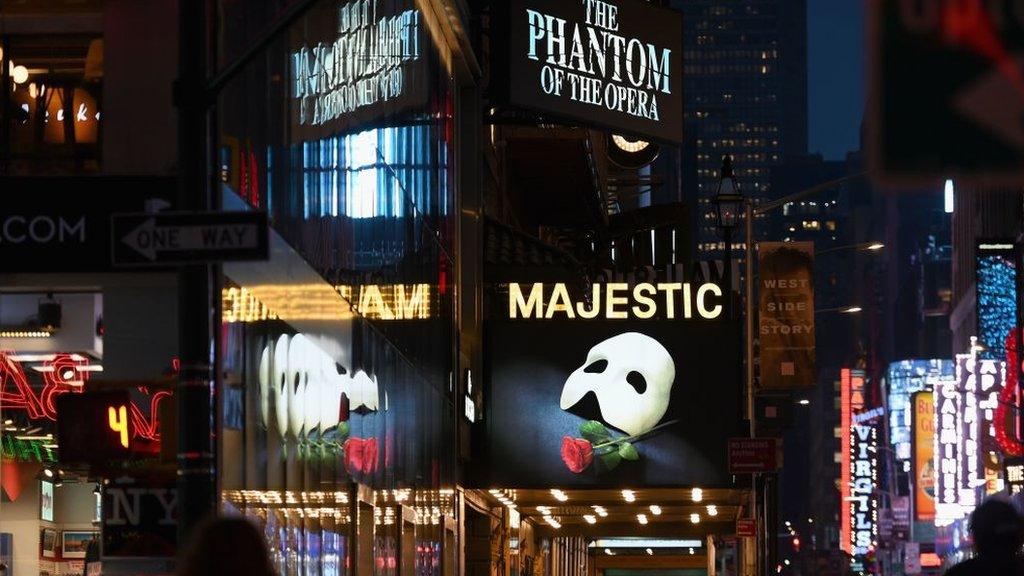
- Published13 April 2020
